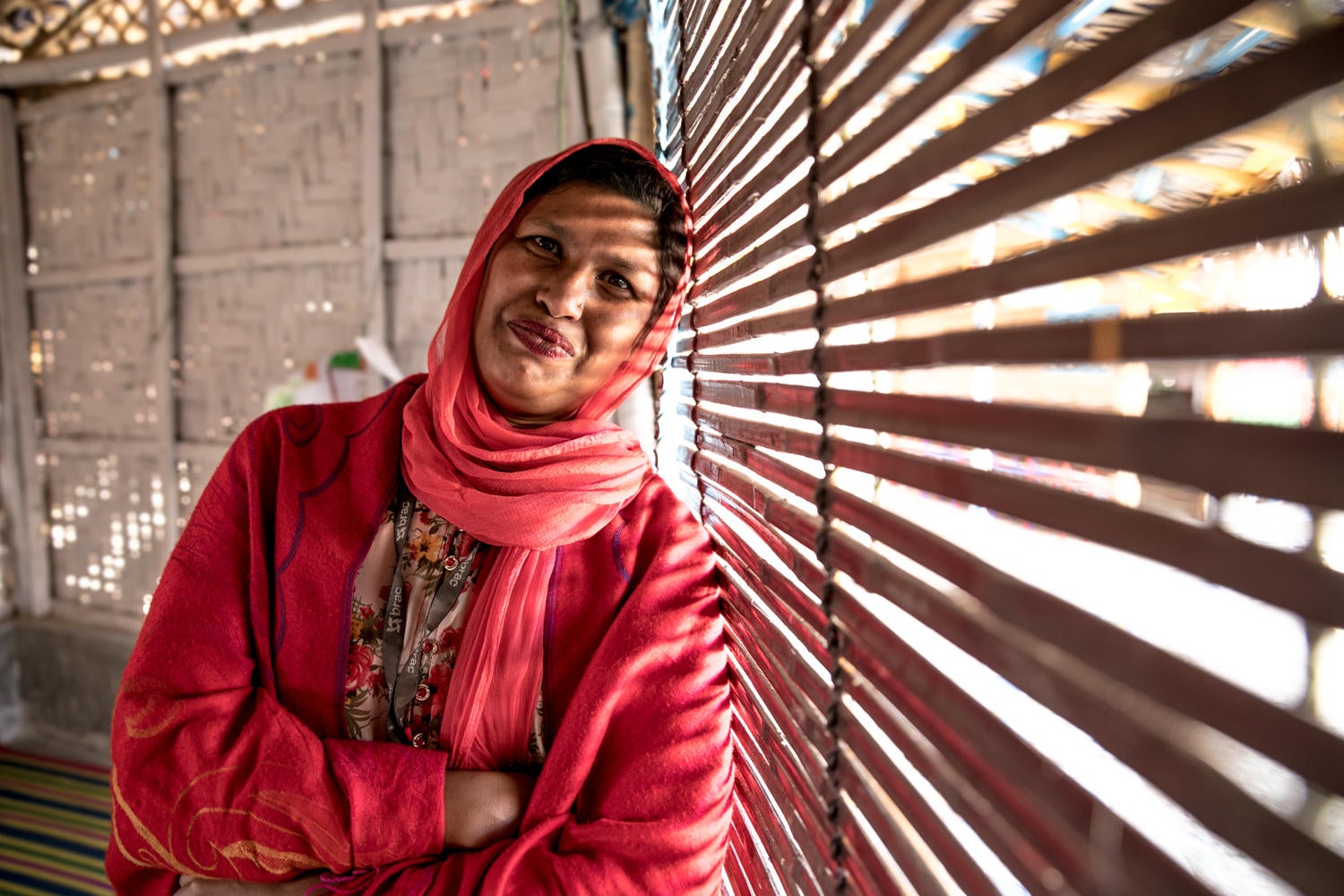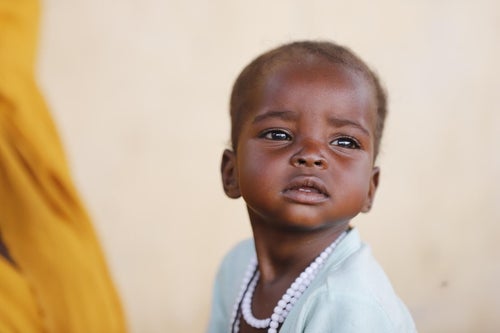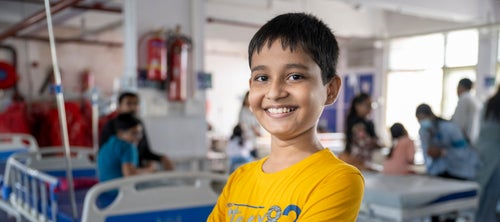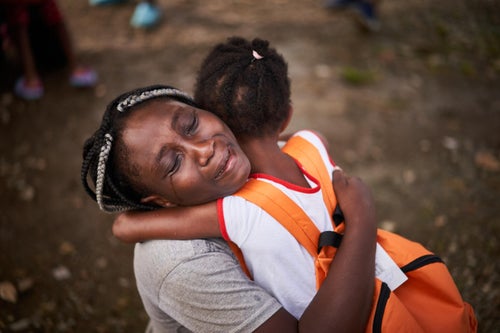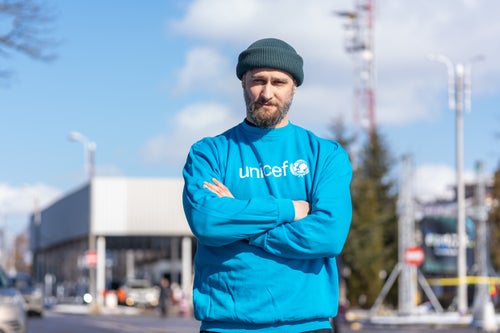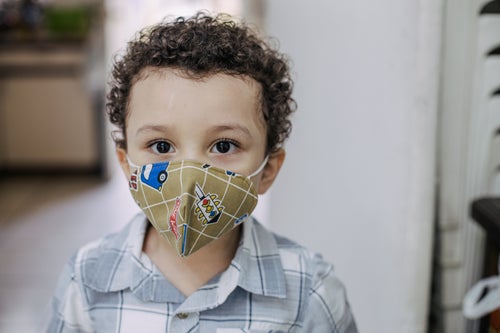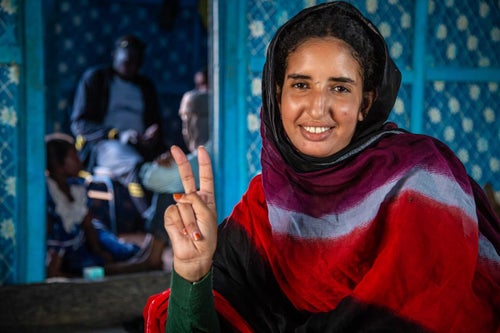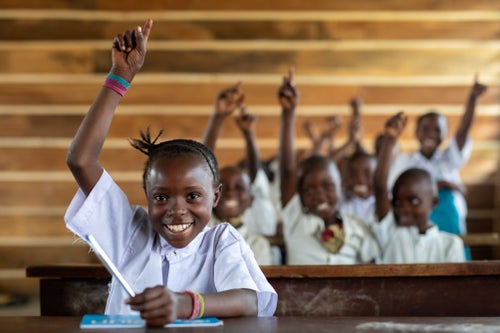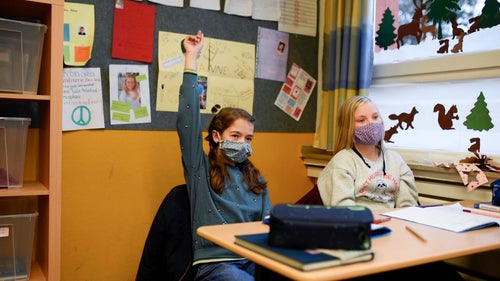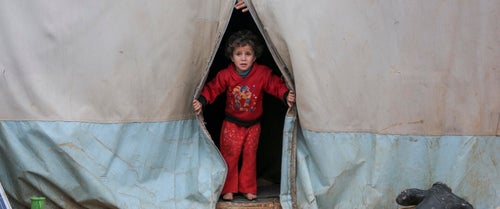The Cox’s Bazar refugee camps in Bangladesh are home to over 860,000 Rohingya people, over half of whom are children.
With families living in overcrowded tent-like settlements with limited access to soap, clean water and sanitation facilities, the spread of COVID-19 could be rapid and catastrophic.
From delivering handwashing supplies, to ensuring malnutrition treatment continues for children, or going door-to-door to support women and girls at risk of gender-based violence, UNICEF teams are there to keep children and their families safe throughout the pandemic.
Alimul, Manager of a UNICEF-supported nutrition centre
Alimul manages a UNICEF-supported nutrition centre in the refugee camps, working with our partner Concern Worldwide.
His family live more than 800 kilometers from Cox’s Bazar. With all public transportation suspended nationwide in Bangladesh, there is no way for him to get home if someone from his household falls ill with COVID-19.
Despite this, he’s stayed in Cox’s Bazar to continue to care for malnourished Rohingya refugee children.
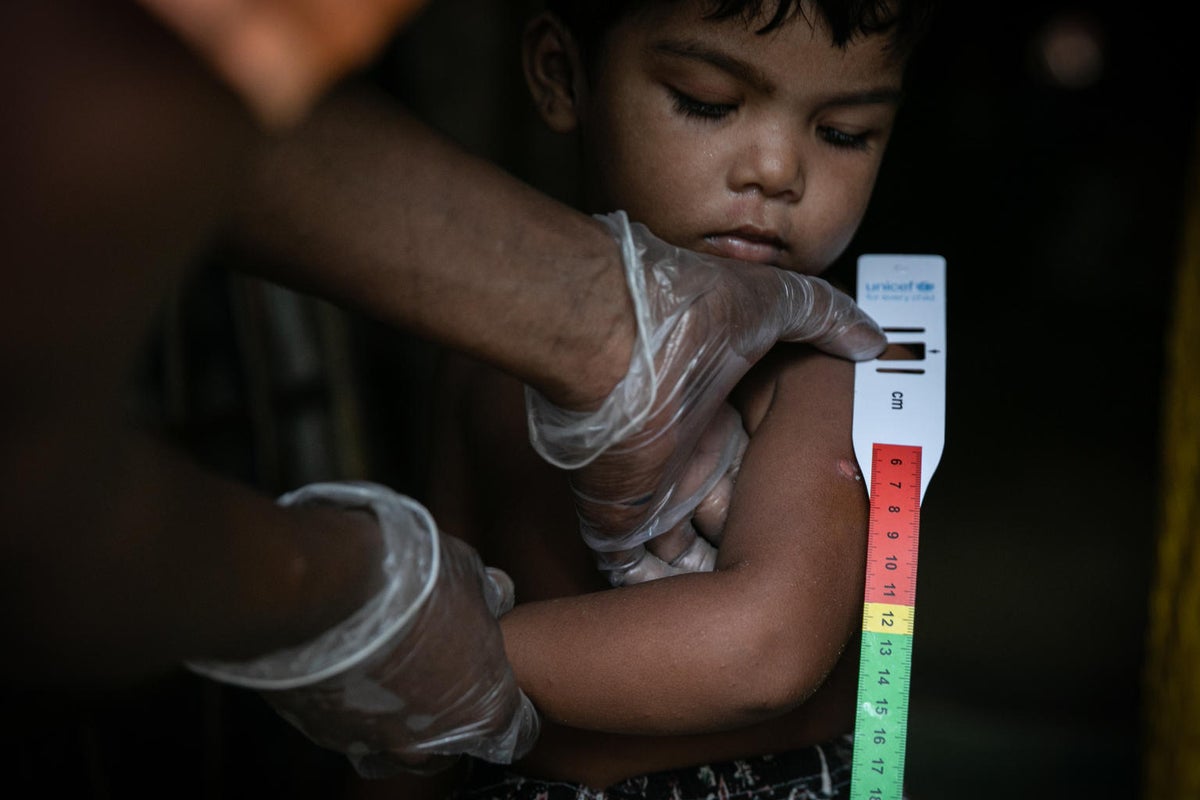
"It’s a great pleasure to see the smile of a child we helped get better."
The level of food insecurity among refugees was already high prior to the pandemic, with many families unable to access enough nutritious food to support their children’s development, growth and even survival. An estimated 30 per cent of children living in the camps suffer from chronic malnutrition, and over 11 per cent suffer from acute malnutrition.
“Our work is needed to prevent more children from becoming malnourished,” says Alimul. “It’s a great pleasure to see the smile of a child we helped get better.”
Alimul’s centre is one of 27 facilities in the camps supported by UNICEF that offer life-saving treatment to children suffering from severe and moderate acute malnutrition.
It’s thanks to the dedication of frontline workers like Alimul that UNICEF can continue to provide critical nutrition services to children and pregnant women in need.
"Our work is needed to prevent more children from becoming malnourished."
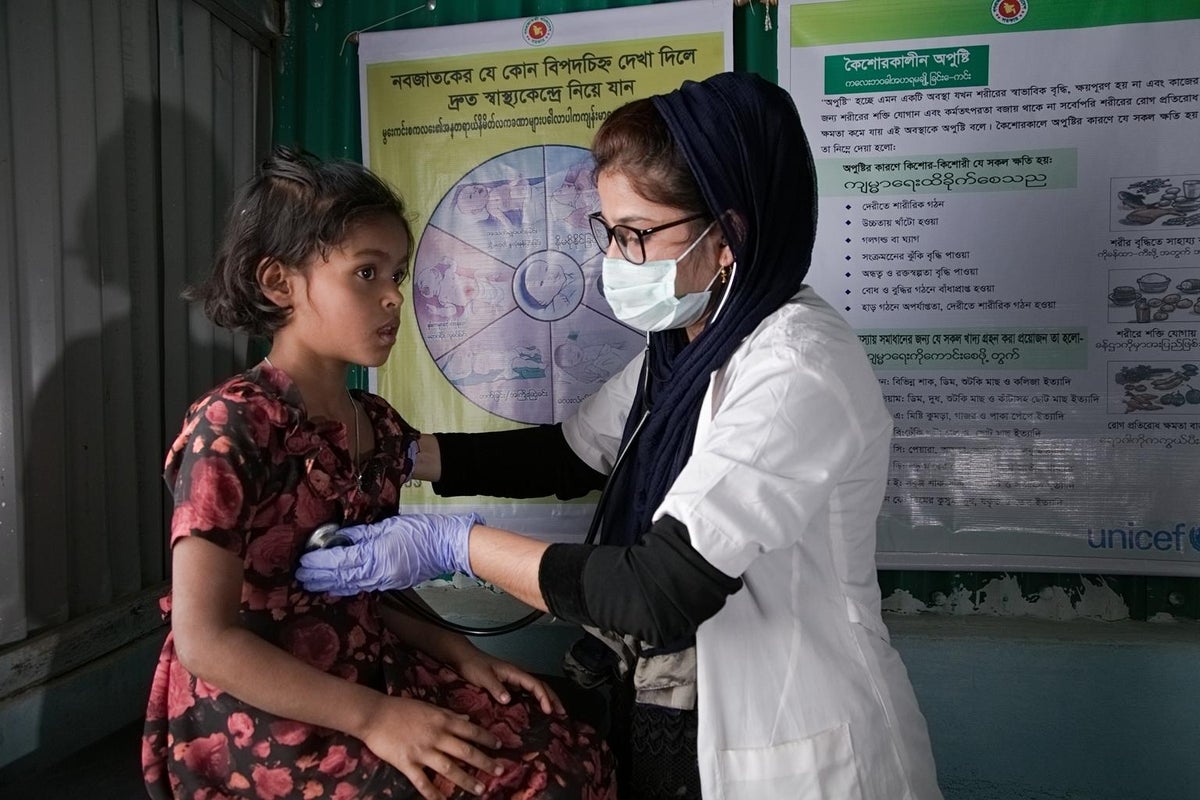
Dr Ashraf Hossain Sohag, Medical Officer
Dr Ashraf Hossain Sohag also works in a UNICEF-supported health clinic in the Cox’s Bazar camps.
Despite the challenges, UNICEF continues to provide essential primary health care for 185,000 Rohingya children and their family members.
Dr Sohag’s clinic has implemented physical distancing guidelines, and the team recently conducted refresher training on infection prevention and control for staff.
"Each time we travel to the camp to work, it is a huge risk."
“We have a rostered rotation of doctors and staff in our clinic to limit potential exposure to the virus and subsequent transmission.”
“At the same, we must serve our patients and so we must be present in the clinic to fulfil our duties as doctors.”
Although the challenges remain immense, UNICEF and health partners are working around the clock to ensure health facilities and workers are equipped to the extent possible to face this global pandemic and protect vulnerable children and their families in Cox’s Bazar.
"We must serve our patients and so we must be present in the clinic to fulfil our duties as doctors."
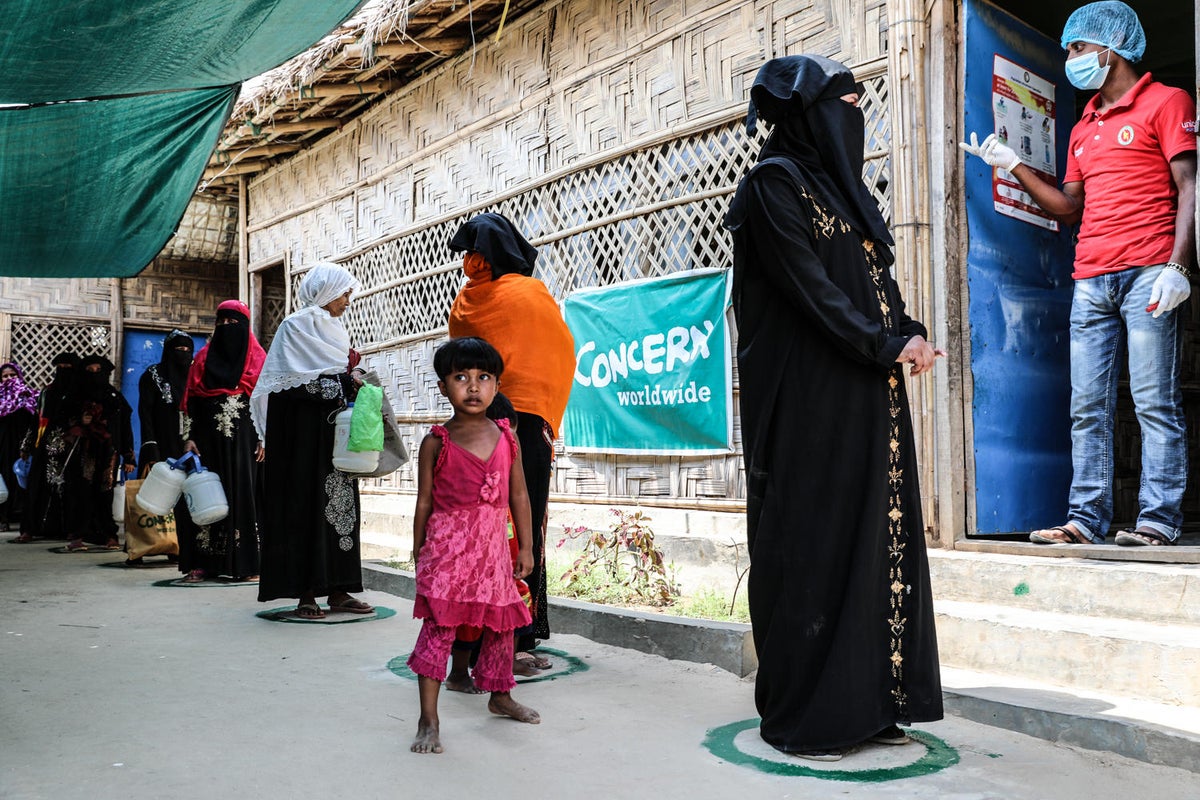
Taslimata, Community Nutrition Volunteer
To help stop the spread of COVID-19, UNICEF works with a network of community volunteers to share accurate COVID-19 health messages and advice, and dispel misinformation and harmful rumours.
Volunteer Taslimata travels door-to-door (while respecting physical distancing guidelines) to promote proper handwashing and hygiene, along with sneezing and cough etiquette. Volunteers like her also help mothers identify if their child is malnourished.
“When I visit women in their homes, they ask a lot of questions about coronavirus,” says Taslimata. “I tell them about handwashing and to keep a distance from other people.”
During the month of March, UNICEF and partners reached over 294,000 people in nine camps through 215 community health volunteers with handwashing and COVID-19 related health and hygiene messages.
Nazum Bibi, Teacher
Good hygiene is essential now more than ever. However, in the Rohingya refugee camps, this poses a formidable challenge.
When Rohingya children first arrived in Bangladesh in late August 2017, there were no basic water or sanitation facilities in place, let alone soap or safe water to wash their hands.
UNICEF and partners raced to set up basic water, sanitation and hygiene services to protect hundreds of thousands of children and their families.
This has helped over 216,000 Rohingya children learn about good health and hygiene and practice their handwashing techniques daily as part of life-skills education.
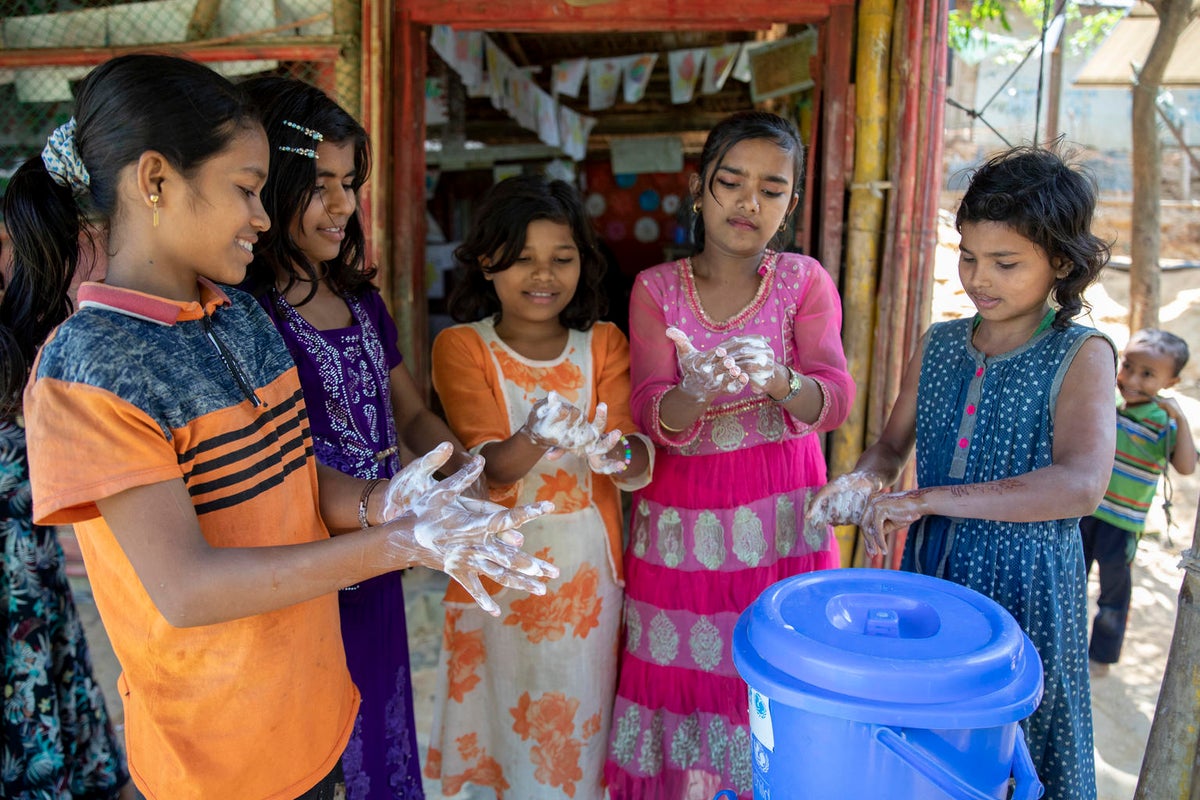
"It has become their daily routine"
“Many children did not know how to maintain good hygiene practices before. They had very little access to education in Myanmar and some did not have soap in their schools or homes,” says Nazum Bibi.
Although UNICEF’s learning centres are temporarily closed as a precautionary measure to stop the spread of coronavirus, the handwashing messages and learned behaviours will play a key role in protecting the health of Rohingya children and their families.
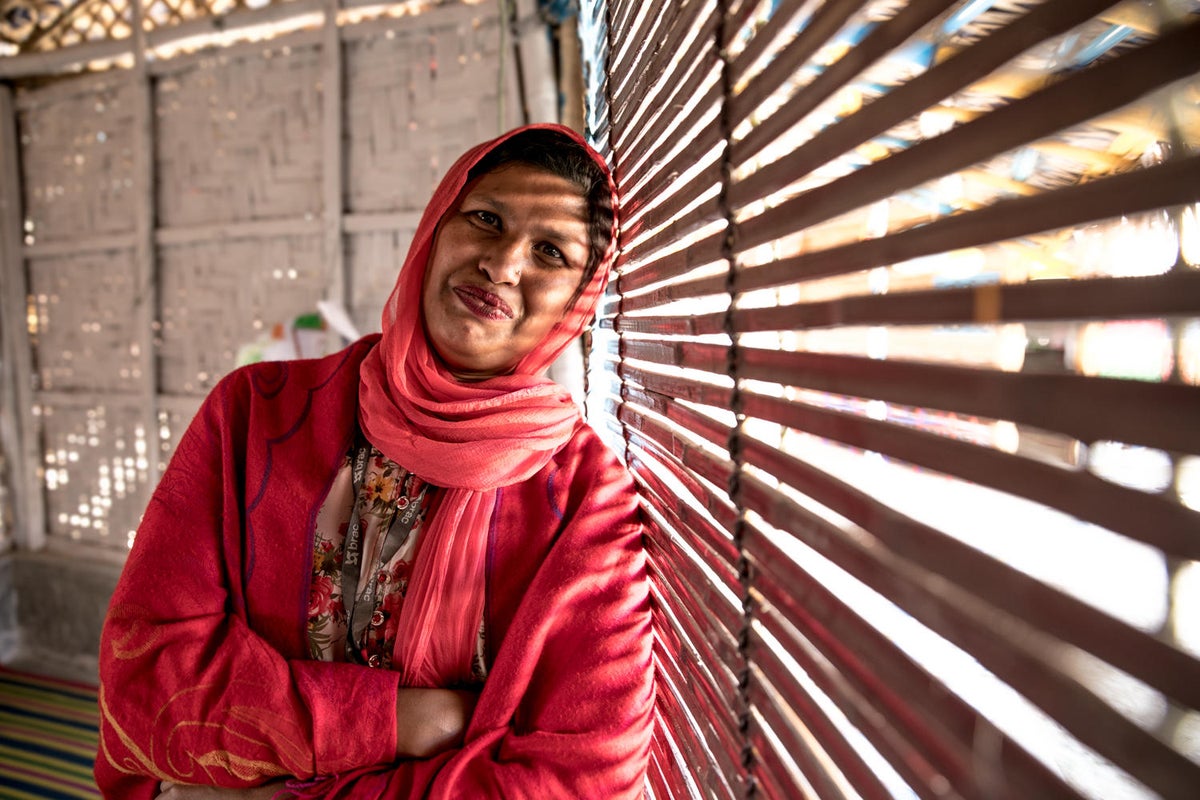
Shumi, Manager of a UNICEF-supported Safe Space for Women and Girls
With many women and girls lockdown in confined shelters within the camps, UNICEF staff are concerned there will be an increase in gender-based violence.
Shumi manages a Safe Space for Women and Girls, providing protection services for Rohingya and Bangladeshi women and girls who are vulnerable and/or are survivors of gender-based violence, trafficking, child marriage and other harmful practices.
To prevent the spread of COVID-19 the centres have been temporarily closed. However, despite the national lockdown, case management, psychosocial support and referrals for health and safety services remain available to assist those in need of support.
Shumi and her team of volunteers go door-to-door to raise awareness of the available services and how they can be accessed. “We try to share as much information as possible with the community,” Shumi says.
“People are afraid because they fear services and care will stop. But we are still here,” Shumi says. “It helps a lot.”
"People are afraid because they fear services and care will stop. But we are still here. It helps a lot."
Donate Where the Need is Greatest
Help UNICEF to be there for children wherever the need is greatest, no matter what.
Related articles
Stay up-to-date on UNICEF's work in Australia and around the world



